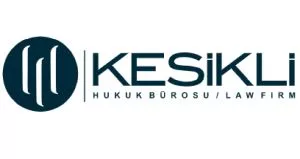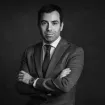- within Energy and Natural Resources topic(s)
- in Turkey
- with readers working within the Pharmaceuticals & BioTech and Construction & Engineering industries
- within Antitrust/Competition Law, Privacy and Law Practice Management topic(s)
I. INTRODUCTION
Turkey's dynamic regulatory framework, anchored by the Electricity Market Law and its accompanying regulations such as Storage Regulation, License Regulation, and YEKDEM Regulation, unveils a compelling landscape for investors seeking to seize opportunities in the burgeoning electricity storage sector. By embracing a progressive approach, Turkey has established an advantageous environment for the establishment and operation of electricity storage facilities. In this article, we will delve into the essential provisions and notable advantages that await prospective investors who are keen on embarking on electricity storage projects in Turkey.
II. INCENTIVES FOR ELECTRICITY STORAGE PROJECTS
Although "Green Field Projects" and "Brown Field Projects" are not legally defined terms in the applicable law, we will be using these terms for ease of reference and understanding.
In the context of electricity storage, greenfield projects would involve the establishment of new facilities or technologies for storing electricity. In contrast to greenfield projects, brownfield projects involve investments in existing facilities, i.e. increase in the capacity or installation of new units. In the context of electricity storage, brownfield projects for storage would involve utilizing or retrofitting existing infrastructure for storing electricity.
A. Green Field Projects
Exempted from The Competition Process of YEKA: Under Article 7, sub-article 10, legal entities planning to establish an electricity storage facility can be granted a pre-license by EMRA for establishing a wind and/or solar energy-based power generation facility with a capacity equivalent to the storage facility. This is considered an incentive as new capacities were previously granted through competition process of YEKA.
Simplified Pre-License Applications: It is provided that the fourth paragraph of Article 7 of the Electricity Market Law (i.e the criteria applicable to wind and solar energy-based power generation facilities) on the evaluation of pre-license applications for the establishment of electricity generation facilities shall not apply to the generation facilities that fall within the scope of these projects.
YEK Support Mechanism: These projects may also benefit from the YEK Support Mechanism (YEK Support Mechanism will be explained in depth below.).
Domestic Contribution Support: These projects may also benefit from Article 6-B of the YEK Law with the amendment dated April 4, 2023. Therefore, domestic contribution support for equipment to be used in electricity storage investments has been regulated as another incentive.
B. Brown Field Projects
Capacity Increase for Existing Facilities: Sub-article 11 of Article 7 allows legal entities holding a wind and/or solar energy generation license to increase their capacity up to the installed capacity of the electricity storage facility they plan to establish. The capacity increase must not exceed the licensed site boundaries, the existing capacity supplied to the system, and requires a positive connection opinion from TEIAS (Turkish Electricity Transmission Corporation) and/or the relevant distribution company.
YEK Support Mechanism: Capacity increases under brownfield projects are exempted from the restriction in Article 6/C of the YEK Law, which normally prevents capacity increases from benefiting from the YEK Support Mechanism. In other words, capacity increases through storage activities can qualify for the support mechanism for the electricity supplied to the system (YEK Support Mechanism will be explained in depth below).
Licensing Exemption: Article 4 of the Electricity Market Law states that certain activities require a license, while Article 14 allows electricity storage activities to be carried out without a license, subject to limits and procedures determined by the Energy Market Regulatory Authority (EMRA).
Furthermore, pursuant to License Regulation, a legal entity engaging in market activities must obtain separate licenses for each activity and each facility where the activities will take place, except for certain exceptions. In this regard, the electricity storage unit within a generation facility, integrated storage units, and auxiliary resource units used in multi-source generation facilities are considered part of the main resource-based facility and can be evaluated under a single license.
C. Incentives That Are Applicable To Both Greenfield And Brownfield Projects
YEK Support Mechanism:
Electricity storage projects (both greenfield projects and brownfield projects) in Turkey can benefit from the YEK Support Mechanism, governed by the Law on the Use of Renewable Energy Resources for Electricity Generation (YEK Law).
-Overall Benefits of the YEK Support Mechanism:
-Diversity of Supported Energy Sources
-Reducing Environmental Damages from Fossil Fuels
-Reducing Energy External Dependency
-Advantages of the YEK Support Mechanism for the Projects:
-Long Term Support Mechanism: Generation facilities that fall within the scope of YEKDEM are provided with an electricity purchase guarantee at a fixed price for 10 years. This creates a stable investment environment for renewable energy projects and offers investors long-term income security. This can facilitate the financing of renewable energy projects.
Payment System Based on Production Forecasts: Generation facilities within the scope of YEKDEM forecast the amount of electricity they generate for the following day in advance. According to these forecasts, the facilities are compensated for their production at a fixed price with a purchase guarantee. The use of this system helps in the planning of electricity generation and the efficient functioning of the energy market.
Fixed Prices and Durations:
Commissioning: The date of commissioning is when a generation facility is officially put into operation, either partially or completely.
Timeframe for YEKDEM Benefits:
If a generation facility is fully operational, it can benefit from YEKDEM starting from the date of commissioning.
If a generation facility joins YEK Support Mechanism before it is fully operational, it can benefit from YEK Support Mechanism for ten years from the date it first joins the program.
For facilities that became operational between January 1, 2021, and June 30, 2021, they can benefit from YEKDEM until December 31, 2030, as per a Presidential Decree issued on September 17, 2020.
Capacity Increases: If a legal entity requests to increase the installed power capacity of their generation facility and it is approved by the relevant authority, the benefits provided by YEK Support Mechanism for the increased capacity may vary:
Capacity increases made within the scope of the eleventh paragraph of Article 7 of the Law (unspecified in the provided text) will benefit from YEK Support Mechanism for the remaining term of the facility's original YEK Support Mechanism benefits.
However, legal entities whose installed power increase requests are approved by the authority as of February 28, 2019, and whose license amendments are made within this scope cannot benefit from YEK Support Mechanism for the increased capacity.
Licensing Exemption:
Pursuant to Article 7/1/e of License Regulation, "Market activities carried out within the scope of electricity storage and demand response within the framework of the limits, procedures and principles to be determined by the Board in consultation with the Ministry" is exempted from the license requirement.
III. REQUIREMENTS AND REGULATIONS
1. Integration into Existing Generation Facilities (Brown Field Projects):
Companies holding licenses for power generation or participating in the YEK Support Mechanism can install storage units within their licensed generation facilities, as per Article 5 of the Storage Regulation. The capacity of the storage unit must not exceed the specified capacity in the facility's license, and it must be installed at the same measurement point as the facility for YEKDEM beneficiaries.
2. Connection and Utilization:
The connection and utilization of integrated storage units, storage units within storage facilities, and stand-alone storage facilities are governed by the provisions outlined in the Electricity Market License Regulation. Unlicensed electricity generation facilities that have received a call letter can establish electricity storage facilities and engage in monthly offsetting for surplus energy, complying with the conditions specified in the Regulation on Unlicensed Electricity Generation.
3. Compliance with Regulations:
Activities carried out through electricity storage units or facilities must comply with the regulations specified in the Storage Regulation. This includes integrating storage units into generation or consumption facilities, establishing detached storage facilities, and grid operators establishing their own storage facilities.
IV. CONCLUSION
In conclusion, Turkey has established a progressive regulatory framework and support mechanisms for electricity storage projects, both in greenfield and brownfield contexts. The incentives provided by the government aim to encourage investments in the electricity storage sector and contribute to the country's renewable energy goals. Greenfield projects benefit from exemptions in the competition process and simplified pre-license applications, while brownfield projects can increase their capacity within the boundaries of existing facilities. Both types of projects can take advantage of the YEK Support Mechanism, which offers long-term income security through fixed-price electricity purchase guarantees. Additionally, licensing exemptions and regulations ensure the seamless integration, connection, and compliance of storage units and facilities. With these favorable regulations and support mechanisms, Turkey presents attractive opportunities for investors looking to participate in the growing electricity storage market.
The content of this article is intended to provide a general guide to the subject matter. Specialist advice should be sought about your specific circumstances.



